May 30, 2025 | 05:58 GMT +7
May 30, 2025 | 05:58 GMT +7
Hotline: 0913.378.918
May 30, 2025 | 05:58 GMT +7
Hotline: 0913.378.918
One of the first fortunate Vietnamese enterprises whose products have satisfied the Organic JAS is Seagull Agricultural Development Corporation (Seagull ADC).
According to its chairman of Board of Directors (BOD), Tran Phong Lan, revealed that the purpose of the business right on its first days of operation is to make “clean” and delicious products to serve Vietnamese consumers.
The products of the corporation began to meet both VietGAP and LocalGAP standards without the use of any chemicals. Instead, they have created their own biological fertilizer to nourish the plants.
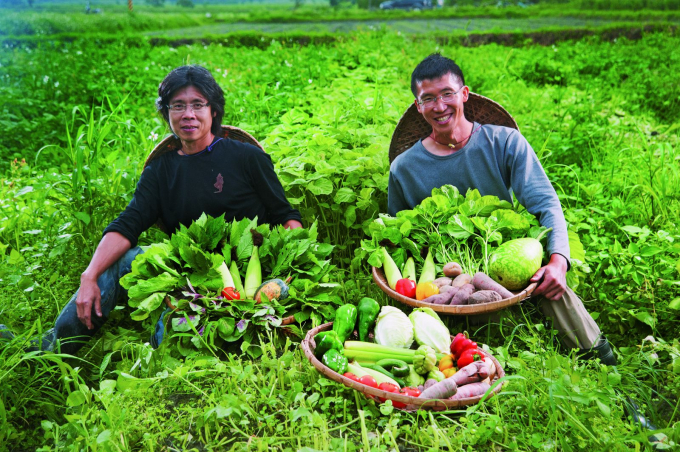
Organic agriculture not only contributes to a sustainable agriculture, but is also the key to exporting high-value agricultural products. Photo: TL.
“We have trained the employees so that they could be aware of the dangers of using chemicals in agriculture. And importantly, all of them have practiced keeping a full diary of the process from sowing seeds to harvesting.
When Japanese experts visited our cantaloupe farm in Tay Ninh, they were amazed with the process we carried out. We have applied the knowledge that has been passed down from our ancestors since ancient times without the use of chemicals, plus the knowledge from keeping the production log and the compliance with the processes. It was when they helped us get JAS certification without having to consult any units in Vietnam,” Lan said.
According to Lan, one of the first requirements to achieve JAS organic certification is that the soil must be organic, which means that it must be left intact for 3 years to get rid of heavy metals and chemicals.
However, he added that it was unnecessary to abandon the land in those three years, but to apply the LocalGAP standard and say “no” to chemicals, then the land is still productive.
“We don't use JAS labels, but to develop another label, DennyGreen to denote that our products are organic-oriented farming ones. Thus, we can avoid the abandonment of land and barns in 3 years", said Chairman of the Board of Directors Seagull ADC.
Similarly, Tan Dat Production Service Cooperative (Vinh Long Province) has also been through an arduous 10-year journey to conquer the organic certification with its 65 members and 100 hectares of production land.
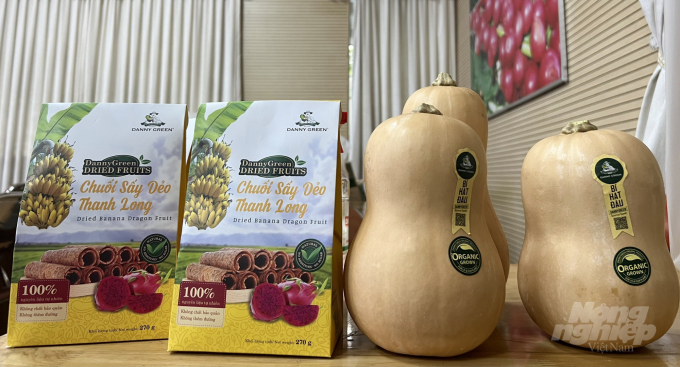
Organic agricultural products by Seagull ADC Company. Photo: Nguyen Thuy.
According to Doan Van Tai, Director of Tan Dat Cooperative, it took such a long time to study the products that are healthful to the community and friendly to the environment, so it was until 2014, the unit could harvest its first success.
Currently, Tan Dat cooperative has been granted 3 organic certifications in the US, Europe and Japan.
According to Tai, cooperatives that want to pursue standard organic production, besides renovating and removing toxins and heavy metals in soil and water, need to develop a separate regulation on the common production process for all members to create quality products. At the same time, it is necessary to establish a sustainable production chain with a consumption market.
“Organic farming is not an easy road, but as long as we are really dedicated, determined and patient, we will succeed,” Lan said.
A seminar entitled Conquering Organic JAS Standards, The Advantages Of Connecting To The Japanese Market has been recently jointly held by the Center for Business Study and Assistance (BSA) and School of Agriculture and Rural Development Management II.
According to Dr. Tran Minh Hai, Director of the Center for Cooperative Economics Training and Consulting (School of Agriculture and Rural Development Managers II), Japan is a country with 126 million people with an increasing demand for importing agricultural, forestry and fishery products.
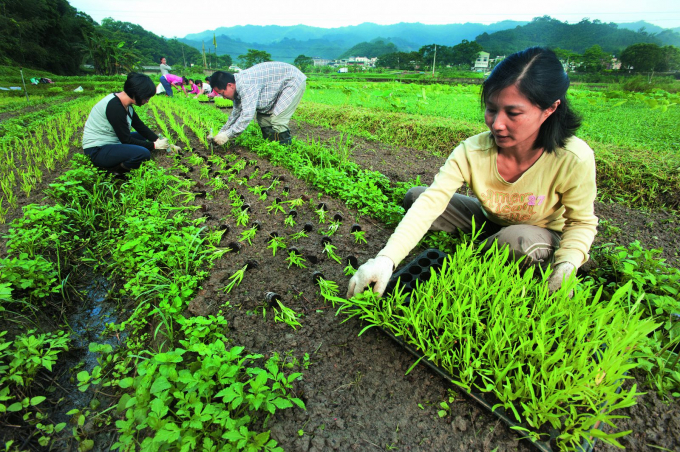
Many more Vietnamese agricultural products have the opportunity to enter the Japanese market in the near future as its potential today is huge. Photo: TL.
Currently, Japan imports many preliminary and processed products from fish, shrimp, eel, meat, eggs, and products from Vietnam's soybeans, grains, and vegetables.
Many more Vietnamese agricultural products have the opportunity to enter the Japanese market in the near future as its potential today is huge. However, Japan is a country that requires extremely difficult quality standards. If the standards and requirements of Japanese markets are met, Vietnamese agricultural products can almost easily enter other markets, he noted.
With extensive experience in introducing over 100 Vietnamese pre-processed agricultural products, seafood and confectionery to the Japanese market, Yumi Nishida - Tuong My, director of Yoshimi Import-Export Company, nearly 500,000 overseas Vietnamese in Japan who are mainly consumers of Vietnamese products exported to the market.
In order for Vietnamese agricultural products to be exported to the Japanese market, in addition to adopting organic techniques, she noted that businesses need to ensure the correct process at the stage of preliminary processing and processing, preventing the products from getting contaminated with E. coli or containing preservatives.
“Japanese people like frozen fruits like durian, jackfruit, longan and have a demand to import many of these items. However, I am concerned that these items are often likely to have preservatives and E.coli bacteria, so I do not dare to export much of them to the country. In particular, Japan has a great demand for canned vegetables such as those to serve hospitals and nursing homes," My said.
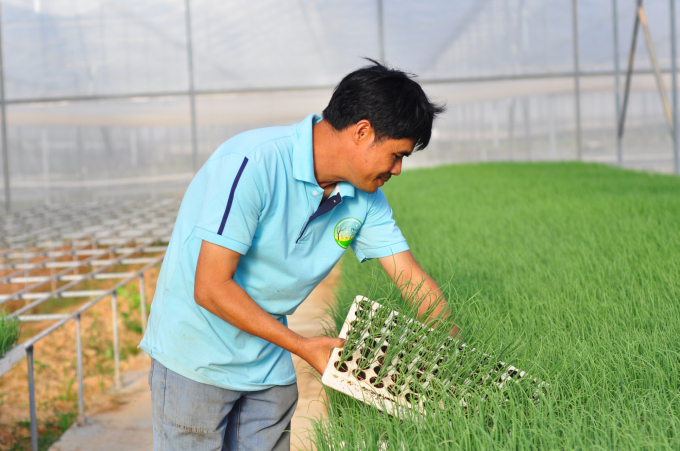
Organic agriculture is the general trend of the world market. Photo: TL.
According to Ino Mayu, coordinator of the "Seed to Table" program, the advantages of Vietnam's nature, geography and climate enable the production of a variety of agricultural products. Currently, Japan mainly imports processed agricultural products from Vietnam but fresh agricultural products are still limited.
Translated by Phuong Ha
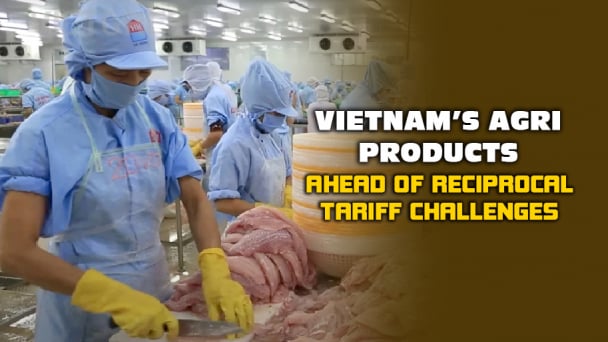
(VAN) Reciprocal tariffs are exerting pressure on U.S. exports, prompting Vietnamese firms to shift their focus to Muslim markets, Thailand, and Brazil.
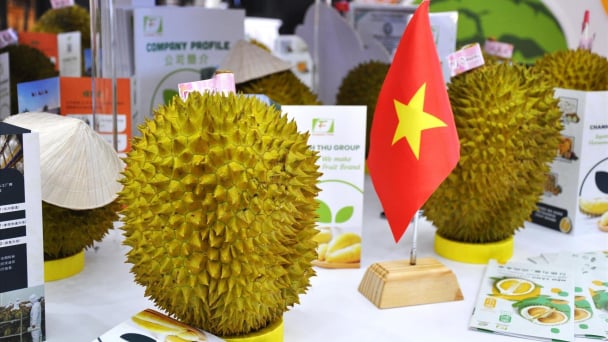
(VAN) A free booth for two years at Xinfadi, Beijing's largest wholesale market, will be allocated to Vietnam's agricultural products.
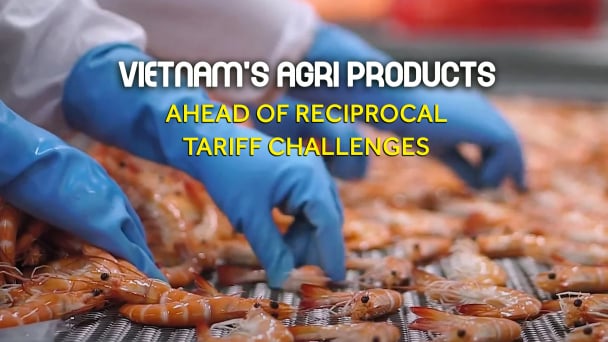
(VAN) Vietnamese shrimp exporters are actively looking for alternative markets and accelerating shipments to the United States in response to the pressure of impending reciprocal tariffs. This is occurring during a temporary tariff suspension.

(VAN) The import-export turnover between Vietnam and Singapore rose amid a trade rebound, with machinery, electrical equipment, and fuels making up the majority of the transaction value.

(VAN) Director General of the General Administration of Customs of China, Ms. Sun Mai Jun, has pledged to implement measures that will ease the import process for Vietnamese agricultural products.

(VAN) Although Vietnam is still increasing its coffee exports, the industry is currently in the process of determining market strategies in response to the U.S. imposition of reciprocal tariffs.

(VAN) With rising demand in Muslim-majority countries, Halal certification is becoming a critical passport for Vietnamese agricultural products seeking sustainable market access and consumer trust in the Middle East and Africa.